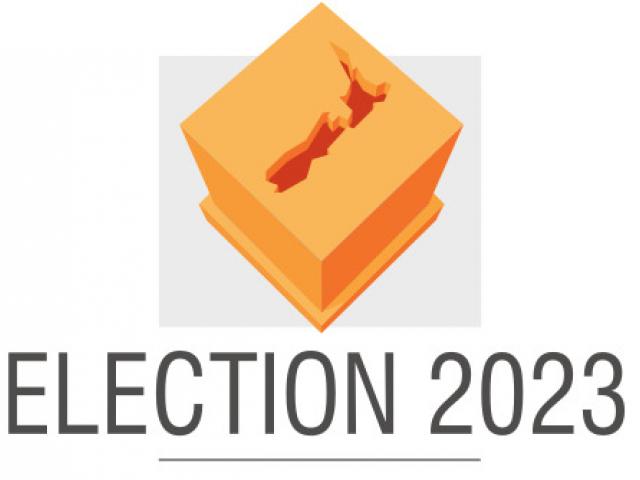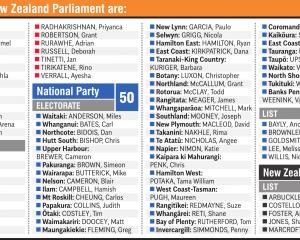They say that opposites attract, but in the case of last night’s 1News multi-party leaders debate our philosophically opposed political parties seemed positively repelled by each other.
Whether it was Green co-leader James Shaw telling Act New Zealand leader David Seymour that the people who could tolerate him were the real heroes, or New Zealand First leader Winston Peters calling Te Pāti Māori co-leader Rawiri Waititi a racist, the gloves were well and truly off.
Mr Shaw and Mr Seymour were chipping at each other from the off, it took only three minutes for Mr Peters to take the first of many digs at the Act leader — the man with whom he may be tasked to form a government in just over a week’s time — and Mr Waititi, unsurprisingly, took a different view on many topics from Mr Peters and Mr Seymour.

The differences between the parties were starkly exposed when moderator Jack Tame asked about what each party had done to ‘‘calm the waters’’ during an at times acrimonious campaign.
Mr Shaw spoke about not using divisive language, Mr Seymour spoke about focusing on policies and not personalities ... while Mr Peters and Mr Waititi started whaling away on each other.
‘‘We are not putting up this separatism, we are not putting up with this racism ... We hate this idea that this party to my right [Mr Waititi] can say that they have superior genetics or superior DNA,’’ Mr Peters said.
‘‘Encouraging people to be proud of their whakapapa is not racism,’’ Mr Waititi retorted.
‘‘We have had social theory being worked by many parties, especially these two next to me [NZ First and Act] that is using words like sub-human, apartheid, separatism, segregation. Those are the words that are triggering and emboldening that type of unacceptable behaviour.’’
Mr Seymour stuck to his main attack lines — ‘‘we cannot keep on the way we have been going with the amount of government waste and the gradual erosion of our democracy’’ — but might have surprised some neutral observers by touting the strong rehabilitation focus in the corrections policy of the self-proclaimed party of law and order.
‘‘Act’s view is that if you are in prison and you want to get out on early parole then before you do that you should have to learn to read, to get a driver’s licence, to get basic skills ...
‘‘We need to turn prisons from being universities of crime to primary schools of basic numeracy, literacy and work skills so that people have a chance of going straight.’’
Mr Shaw, unsurprisingly, was strong on climate change, and especially the notion that New Zealand could make a difference by cutting its emissions.
‘‘If you didn’t take action on climate change because you are too small that’s kind of like saying you wouldn’t participate in World War 2 because we couldn’t have defeated the Nazis by ourselves.
‘‘We have got a population the size of Los Angeles city. If we don’t take action, does Los Angeles need to take action? Does New York, Houston, Chicago, in other words the United States?’’
In a four-person debate it is difficult to assess a winner, but each leader will feel that they achieved their aim last night.
Mr Shaw will have thrilled his base by his continual put-downs of Mr Seymour, whose base may well have the same feeling but in reverse.
Mr Peters got that precious commodity for a party not in Parliament — air time — while for Mr Waititi, mourning his mother, simply turning up and doing credibly was a win.
The losers were National leader Christopher Luxon and Labour leader Chris Hipkins, who will be left wondering how they will get some of these clashing cats to walk in an orderly parade when it comes to forming a government.










